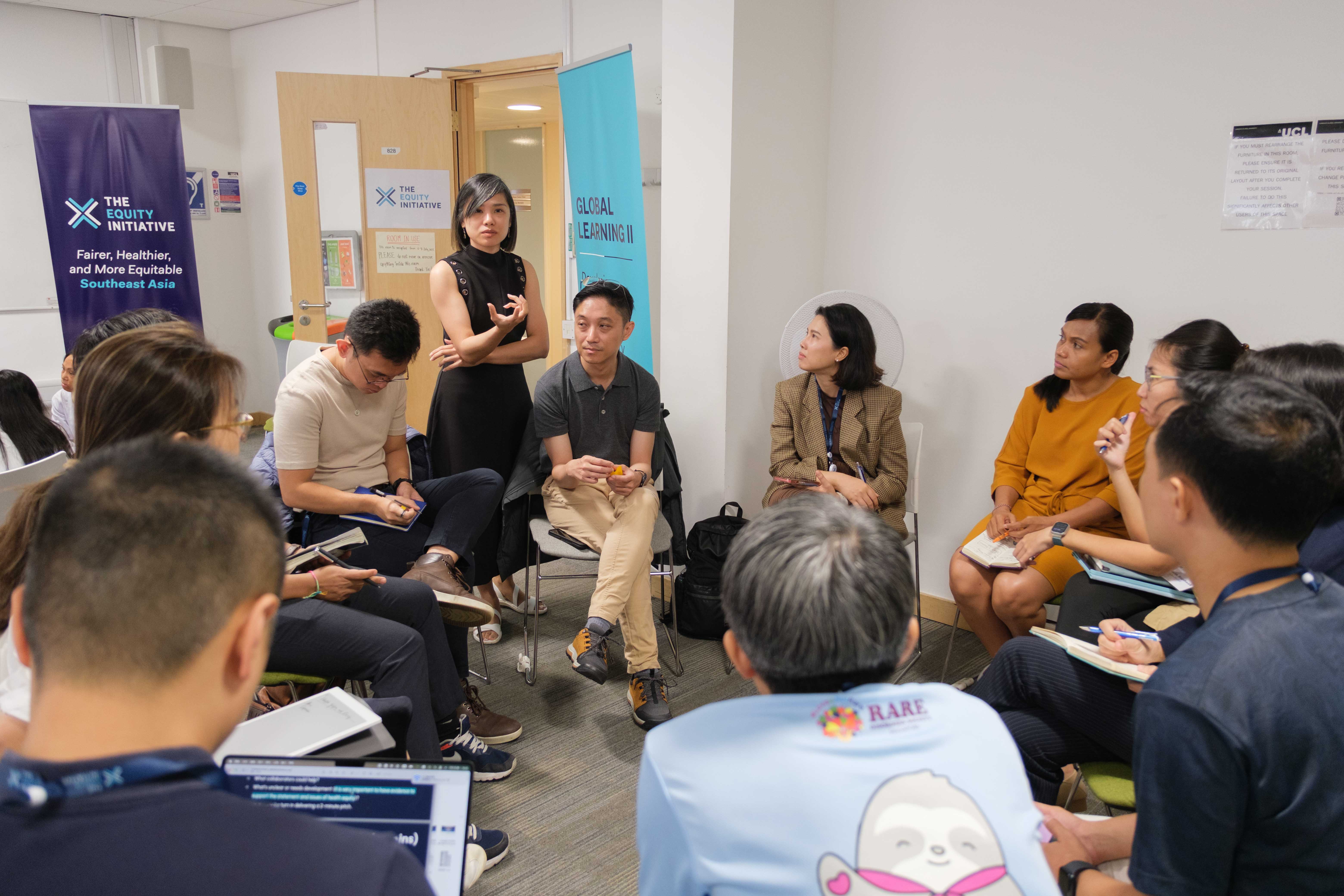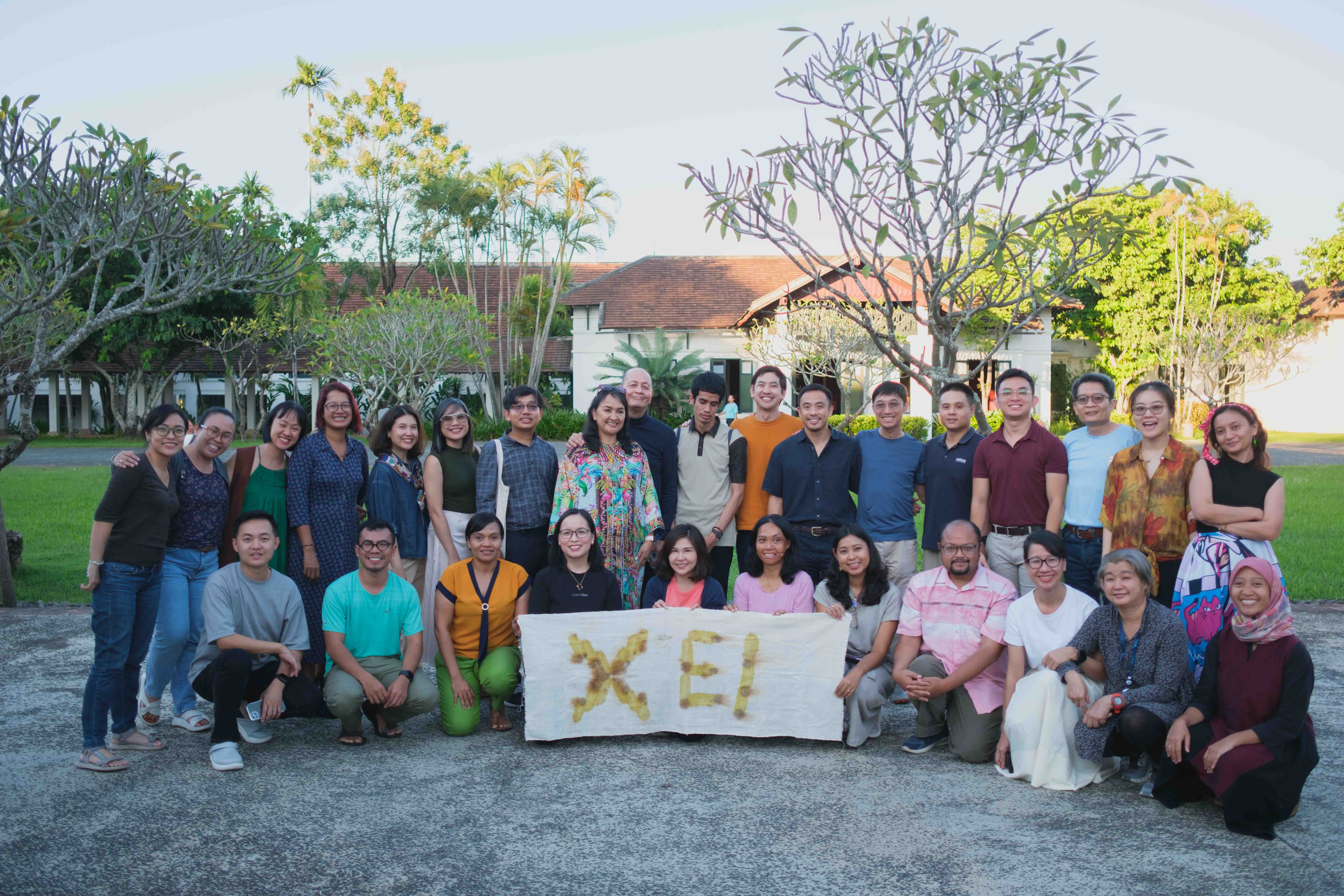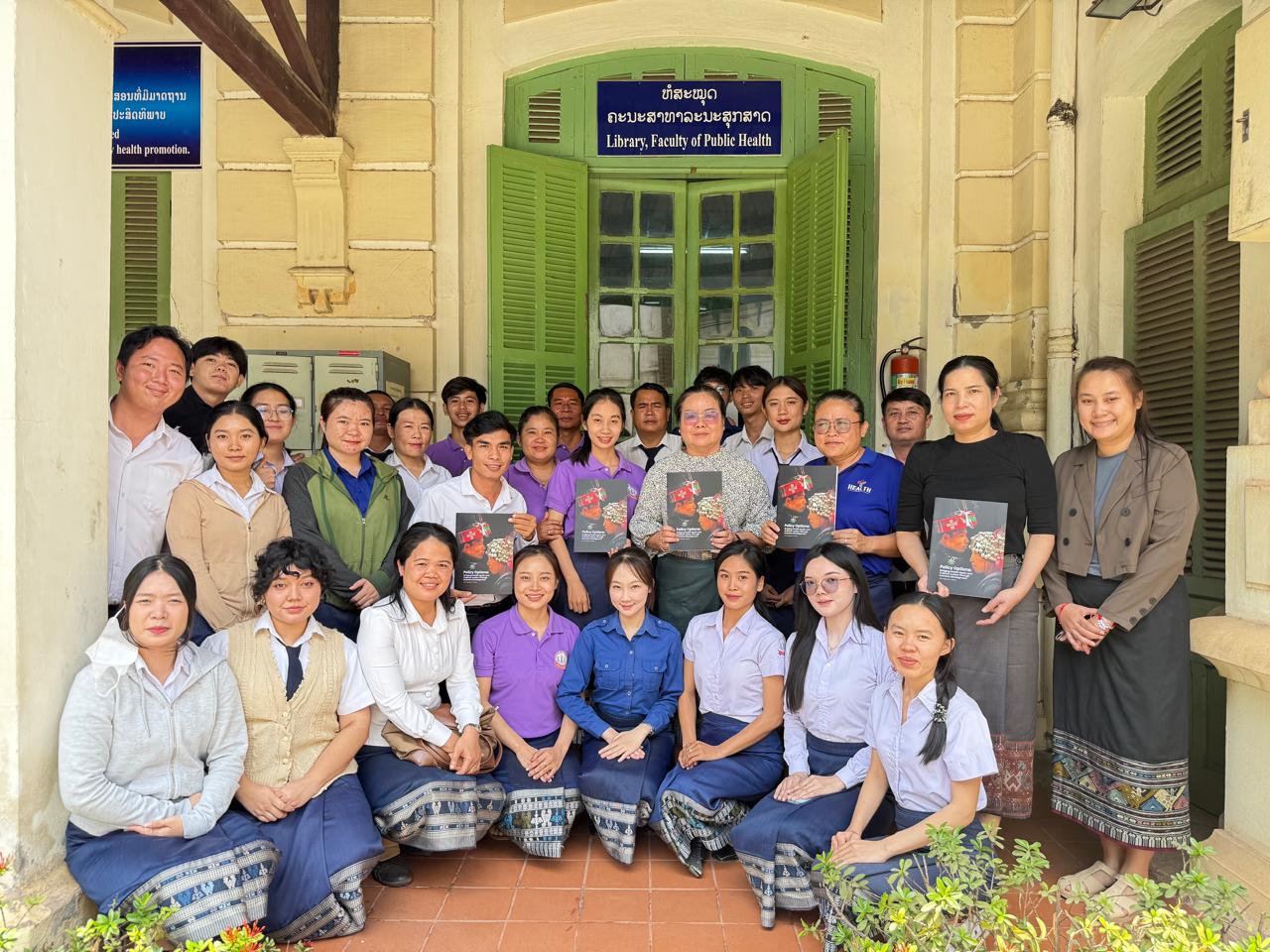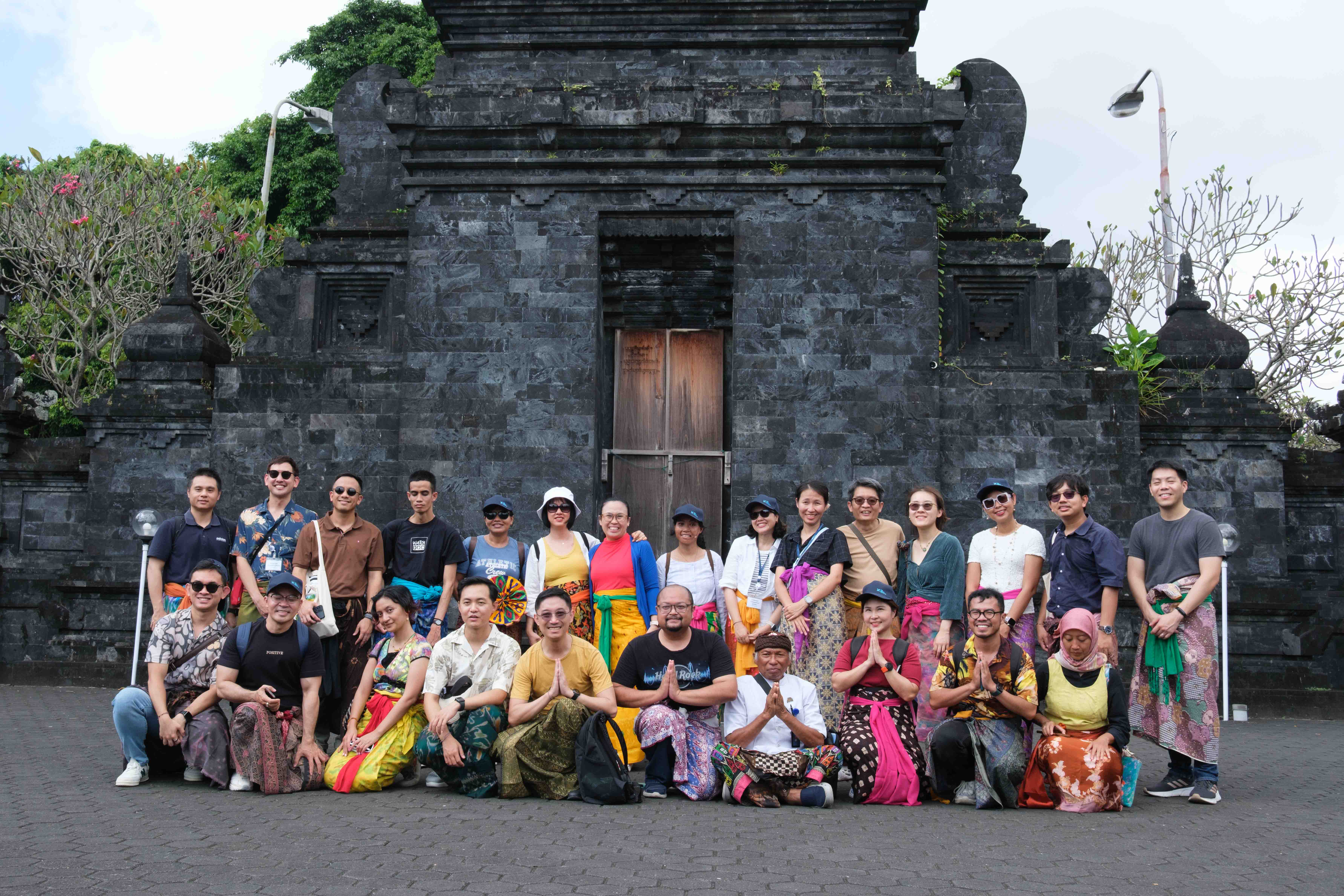Global Learning II: Bridging Histories Across London and Oxford
As the Equity Initiative expands its commitment to cross-regional learning, this year’s Global Learning II took Fellows from the heart of London’s policy corridors to the historic colleges of Oxford. From 5 to 12 July 2025, the 30 2025 EI Fellows explored how the United Kingdom’s layered histories—of empire, public welfare, and community activism—shape contemporary efforts toward equity.
Fellows arrived in London and enjoyed a jovial kick-off meal to get to know their peers a little more. It was a time to set personal intentions for the week and prepare themselves for the busy days ahead, and perhaps reflect on their time during Global Learning I. The goal of Global Learning events is to remove Fellows from their local contexts and gain a larger perspective on how lessons from health leadership abroad can be brought back home. ‘I was aware that my understanding of the world was limited… that health inequalities weren’t random—they were shaped by specific local factors like local economies, or how strong and connected communities were. So, I went in with the mindset that I should listen more, not compare systems, but try to understand how real solutions came from real-life situations’ said Zhu Siji (2025, China).
The next full day of programming started with a “A Conversation of Care,” a Fellows-led session on safeguarding practices and exploring strategies to support both individual and collective wellbeing as the Fellows moved through the week. The afternoon saw a visit to Street Kitchen London, a grassroots volunteer-led organization supporting people experiencing homelessness. Fellows participated in preparing and distributing meals to get a direct look at community-driven responses to urban poverty and inequality.
At LSE, Professor Armine Ishkanian introduced research from the International Inequalities Institute and the Atlantic Fellows for Social and Economic Equity program, showing how evidence and collective learning guide policy change. Then, Debbie Sorkin of the Leadership Center UK introduced Fellows to Adaptive Leadership and Public Narrative—approaches for navigating complex challenges by engaging stakeholders in problem-solving and transforming personal and shared stories into compelling calls for collective action. Quynh Anh(2025, Vietnam) reflects ‘With many lessons learnt, the week's highlight is Adaptive Leadership… We are a young community in health policy striving to make a better impact through communication, and these lessons and experiences would show us how to set a better platform for different stakeholders to connect.’
The day after, Professor Kara Hanson of the London School of Hygiene and Tropical Medicine unpacked health system financing. Following this, Dr David Nabarro of 4SD led a session on navigating differences and amplifying impact. In the afternoon, journalist and sociologist Gary Younge examined the power of public voice in confronting inequality, illustrating how systemic barriers often silence marginalized communities and challenging Fellows to foster inclusive spaces where diverse perspectives inform policy and public understanding.
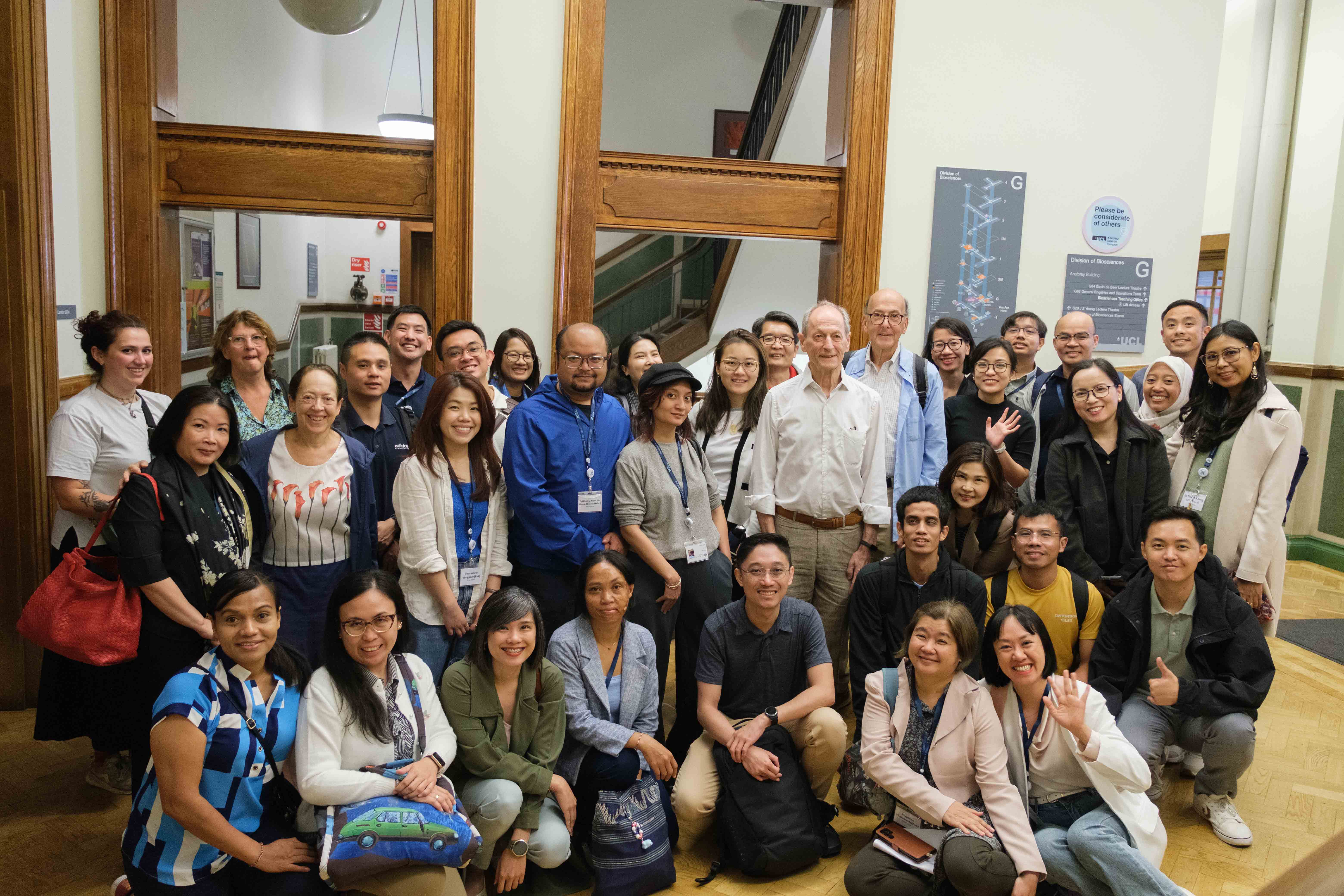
The 2025 EI Fellows after their session with Professor Sir Michael Marmot.
Fellows also had a session with Professor Sir Michael Marmot and the Institute of Health Equity (IHE) team at UCL presented on the social determinants of health and health equity. Drawing on UK and global evidence, they explored how structural drivers shape health outcomes and perpetuate inequities. Fellows engaged directly with the IHE team to discuss how these insights can guide equity-focused leadership and action in their own settings.
Midweek site visits offered an immersive look at community-driven care in action. Splitting into two groups, half the Fellows spent the morning at Turning Point’s integrated care services, where they observed multidisciplinary teams providing substance use recovery, mental health counseling, and housing support under one roof. They met peer mentors who have navigated their own recovery journeys and learned how lived experience shapes compassionate program design. Ei Thant (2025, Myanmar) thought ‘I was deeply inspired by the dedication of the staff at Turning Point… Their commitment reinforced my belief that achieving health equity requires deeper understanding of the contexts, people-centered approaches that foster trust and address both visible and challenging barriers to access quality healthcare.’
The second group visited Mind in Haringey’s community wellbeing centers, exploring culturally sensitive outreach programs, drop-in support groups, and volunteer-led initiatives that address social isolation and foster resilience. Across both organizations, Fellows saw how local leadership, trust-building, and flexible service models bridge policy intent and grassroots needs, offering replicable lessons for equitable care systems. Pheana Sopheak (2025, Cambodia) reflected ‘My visit to Mind in Haringey strongly reinforced my definition of health equity... Their workers, some with experience themselves, provide real, empathetic care and focused resources to the clients… actively promoting equitable health outcomes.’
Back at the London School of Economics the next day, Professor Duncan Green and Dr Tom Kirk led a full-day interactive workshop on systems thinking, power analysis, and strengthening research impact. Through practical frameworks—such as causal loop diagramming, stakeholder mapping, and power-mapping exercises—Fellows visualized complex social systems in their own contexts, identified critical leverage points, and experimented with strategies to translate research findings into policy influence. Hands-on sessions guided participants through coalition building, impact planning, and metrics design, equipping them with concrete tools to drive equitable change within dynamic institutional landscapes.
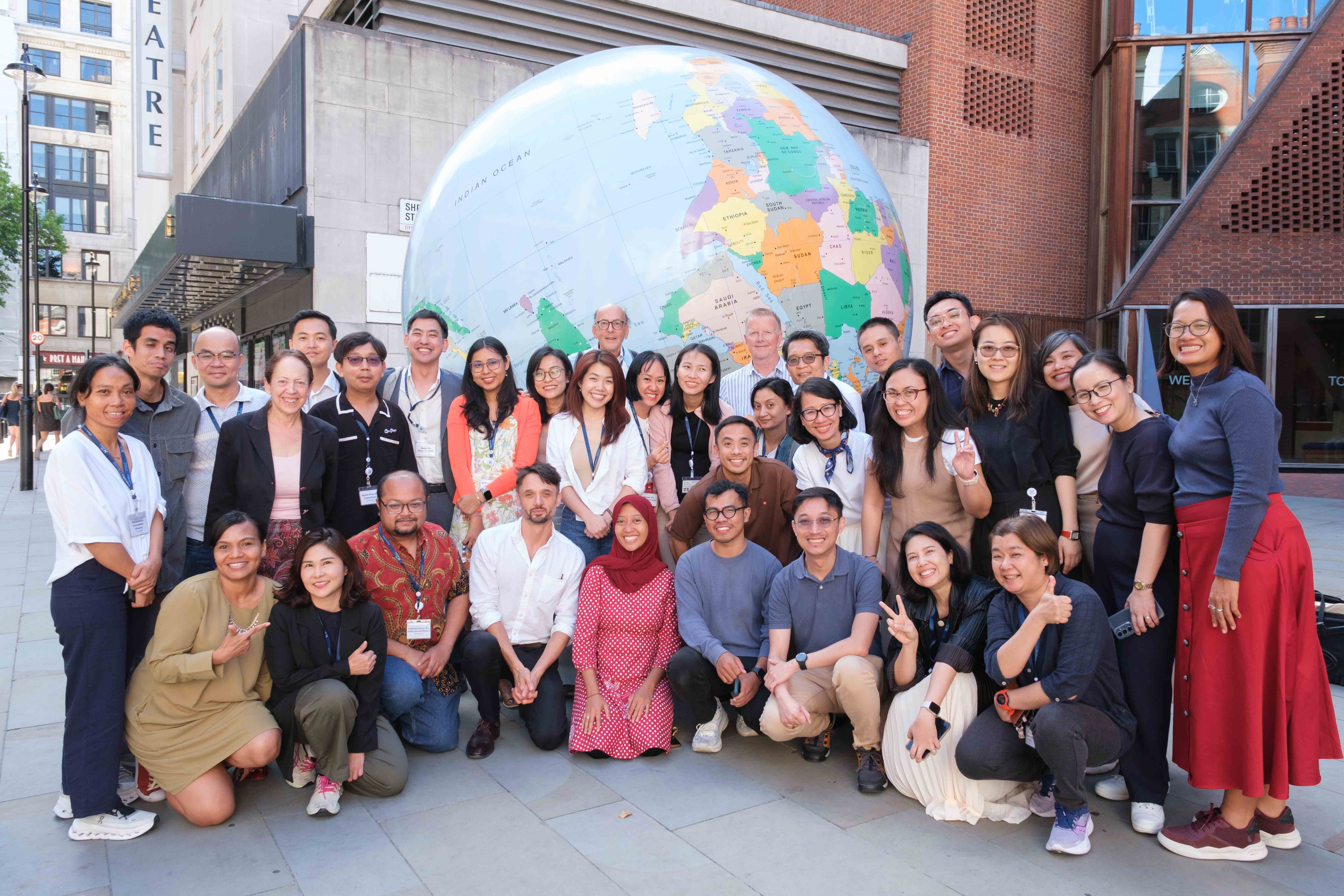
Fellows after a full day session with Professor Duncan Green.
A special journey to Oxford marked a transition from structured learning to reflective retreat. Fellows explored narratives on a walking tour of the city and reflected on insights from the week. Zhu Siji (2025, China) reflected ‘In the end, I saw that week as a kind of wake-up call. It challenged my assumptions and made me realize that health isn’t just about medicine—it’s a reflection of what a society values, and how creative people can be when facing complex problems.’
Returning to London, a closing circle invited Fellows to articulate concrete commitments for their second-year projects. ‘No matter where we come from, we all have homework to do in addressing health inequities’ said Haris Apriyanto (2025, Indonesia). Departing Heathrow, they carried with them strengthened peer networks, sharpened analytical tools, and a shared resolve to advance equity in their home communities.
As the Fellows made their way home, Polwish Subsrisunjai (2025, Thailand) captured his reflections in a poem, inspired by the session led by artist and educator Rawz:
Half of the learning year has passed.
Flied through Hue, Capetown, and London,
Learned from global and local to mental.
Immersed with outside and inside experiences.
Inspired to learn, inspired to connect.
Spend life better, and worth.
Much to read, much more to learn, greater to feel.
Cannot choose what others say, but choose how you learn and feel.
Learn from the best, but not only the best is real.
No single correct answer appeals.
Try peeling multiple truths that shield.
Connected and unconnected is a cycle.
On and off is vital.
Select the target of your rifle. Shoot what is vital.
Burn bullets of life’s rifle as critical, to move the dark and light cycle.
Free from judging.
Liberate. Break the cage confining.
Trust is the rule of connecting.
Aware thoughts support or limit your perceiving and sensing.
Struggling with speaking.
But imagine, what if excelling at influencing.
It will help people living and negotiating.
Crafting toward the way of communicating.
Integrating the practice in daily living.
The goal is to live with different identities,
connect with the global society,
bridge communities with humanity,
contribute with well-being, equity, and dignity, for a good society.
-Ohm, 13 July, 2025
On the plane from London to Bangkok
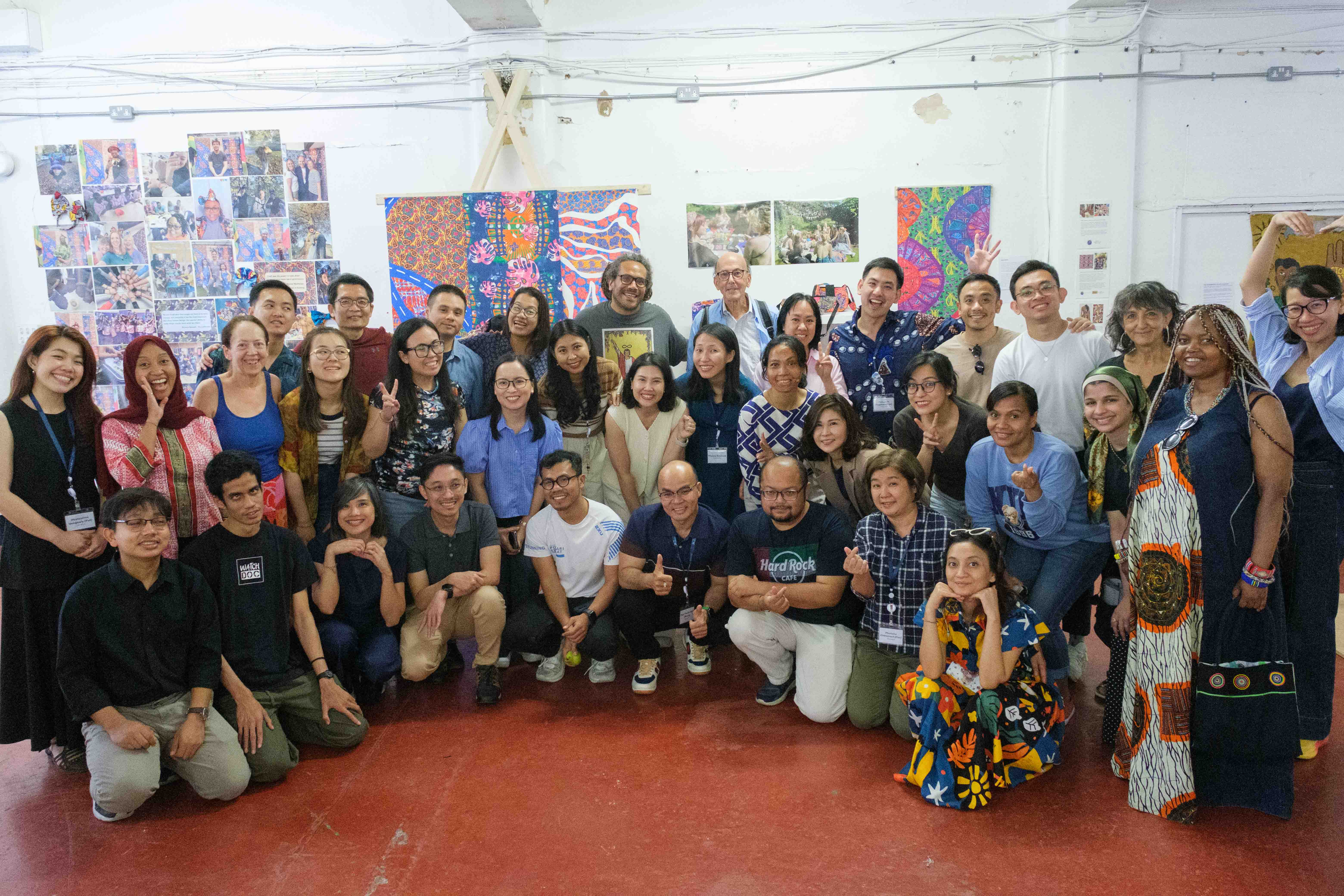
The 2025 EI Fellows completing their session with Rawz.
